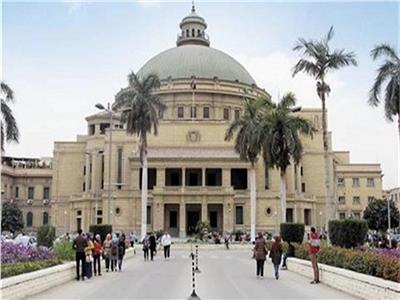Egyptian universities suffer from multiple corruption incidents that news reports and court cases reveal from time to time. The manifestations of corruption in public universities vary between financial and sexual bribery, theft of research, professors harassing female students, forcing students to buy university books, in addition to corruption related to promotions and the awarding of academic degrees. Opponents say that the Egyptian regime has allowed Egyptian universities to drown in corruption in favour of private universities’ investments owned by businessmen loyal to the Egyptian government.
The past years have witnessed multiple incidents that fall under the name of financial, administrative, and moral corruption, whose protagonists are some of the faculty members in various Egyptian universities, in an unprecedented manner. The most recent moral corruption incidents were revealed by the Supreme Administrative Court ruling dismissing the former dean of the Faculty of Education at Benha University (north of Cairo).
In its decision, the court based its decision on recording and filming the meetings between the dean of education and a woman named LM in postgraduate studies. The agreement appeared to be sexual bribery, in exchange for leaking questions for the Teaching Methods exam. According to Benha University’s President Gamal al-Saeed, the former Dean has been suspended from work since January 2018, when the accusations were raised about him.
University corruption
The dismissal of the dean from his job due to sexual bribery is not the first such incident. In July of last year, the President of Cairo University, Muhammad Othman al-Khasht, approved the university’s disciplinary council decision, which was issued to dismiss Yassin Lashin, a full-time professor at the Faculty of Mass Communication, from his job. The dismissal decision came after he was found guilty of sexual harassment and bribery, two years after he was referred for investigation. And in early August 2017, sexual audio recordings attributed to the professor Yassin Lashin were leaked, in which he sexually blackmails a girl, bargains with her and forces her to have sex with him.
An official source at the College of Media revealed that Lashin blackmailed female students and forced them to meet him in the cafe he owned in the Dokki area, noting that a large number of them complained about him harassing them.
Plagiarism
Last February, pioneers of Twitter and social media sites launched a trending hashtag in which they complained about what they described as the tyranny of university professors due to the theft of students’ graduation projects. Many graduates of the Shebin el-Kom Faculty of Engineering at Menoufia University accused a former university president and another university professor of seizing their graduation project and refusing to allow them to obtain the project despite signing a paper to allow them to do so.
In the same month, the Supreme Administrative Court issued a ruling dismissing a university professor at the Department of English Language at the College of Human Studies and Literature in Dakahlia, on charges of stealing three research papers. The university professor submitted five papers for a promotion to the rank of assistant professor. After examining the research papers, it was proved that three of them were verbatim transcribed from a PhD thesis presented by an American researcher at the University of North Carolina in the United States of America.
No monitoring
According to specialists and academics, there are many incidents of corruption in universities. Still, they cannot be officially counted due to the reluctance of the concerned authorities to publish the details. Educational expert Asma Allam said that the reason for the spread of moral corruption and the absence of a good role model for students in Egyptian universities is due to several factors. Most notably, the weakness or absence of oversight over the university professor, the university’s granting of full powers to university professors, and the inadequacy of the penalties stipulated for the violations that are monitored.
MP Magda Nasr, member of the parliamentary education and scientific research committee, believes that there are five corruption issues, summarised as follows:
- Apparent corruption in research and transmission under the eyes of some faculty members.
- Suspicious relations in special education for international students inside universities.
- Private lessons within universities.
- File correction within some faculties.
- The issue of graduate studies and the organisation of the admission process within the colleges and the rulings of faculty members over them.





Recent Comments